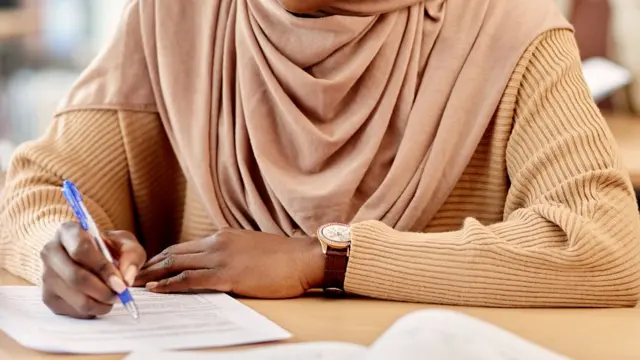A controversy has erupted at Olabisi Onabanjo University (OOU) in Nigeria following the circulation of a viral video showing female students being physically checked to determine if they were wearing bras before being allowed into an examination hall. The incident, which occurred in the university located in Ogun State, has drawn widespread condemnation from rights groups, students, and the general public.
In the footage, female staff members are seen touching students’ chests as they queue to enter the exam venue. While the university has yet to issue an official statement, a student leader defended the bra rule, describing it as part of the institution’s dress code intended to promote “a distraction-free environment.”
However, the enforcement method has come under intense criticism. Human rights activists and legal experts argue that the practice amounts to a violation of students’ bodily autonomy and could constitute sexual harassment. “Unwarranted touches on another person’s body are a violation and could lead to legal action,” said Haruna Ayagi of the Human Rights Network. “The university is wrong to adopt this method to curb indecent dressing.”
A female student, speaking anonymously, described the university’s moral code as excessively strict, noting that students’ clothing is regularly scrutinized. Despite not being a religious institution, OOU enforces a conservative dress code that some have called outdated and sexist.
In response to the backlash, the president of the university’s student union, Muizz Olatunji, took to social media platform X (formerly Twitter) to clarify the institution’s stance. He reiterated that the dress code was designed to uphold modesty and prevent distractions during academic activities. He acknowledged the need for alternative enforcement strategies, stating that the union had engaged with the administration to seek more respectful and dignified methods.
The published dress code bans clothing “capable of making the same or opposite sex to lust after the student in an indecent manner,” a clause critics say reinforces harmful gender stereotypes.
Founded in 1982 and renamed in 2001 after former state governor Olabisi Onabanjo, the university now finds itself under national scrutiny as calls grow for reform and accountability in how dress codes are enforced on campus.

